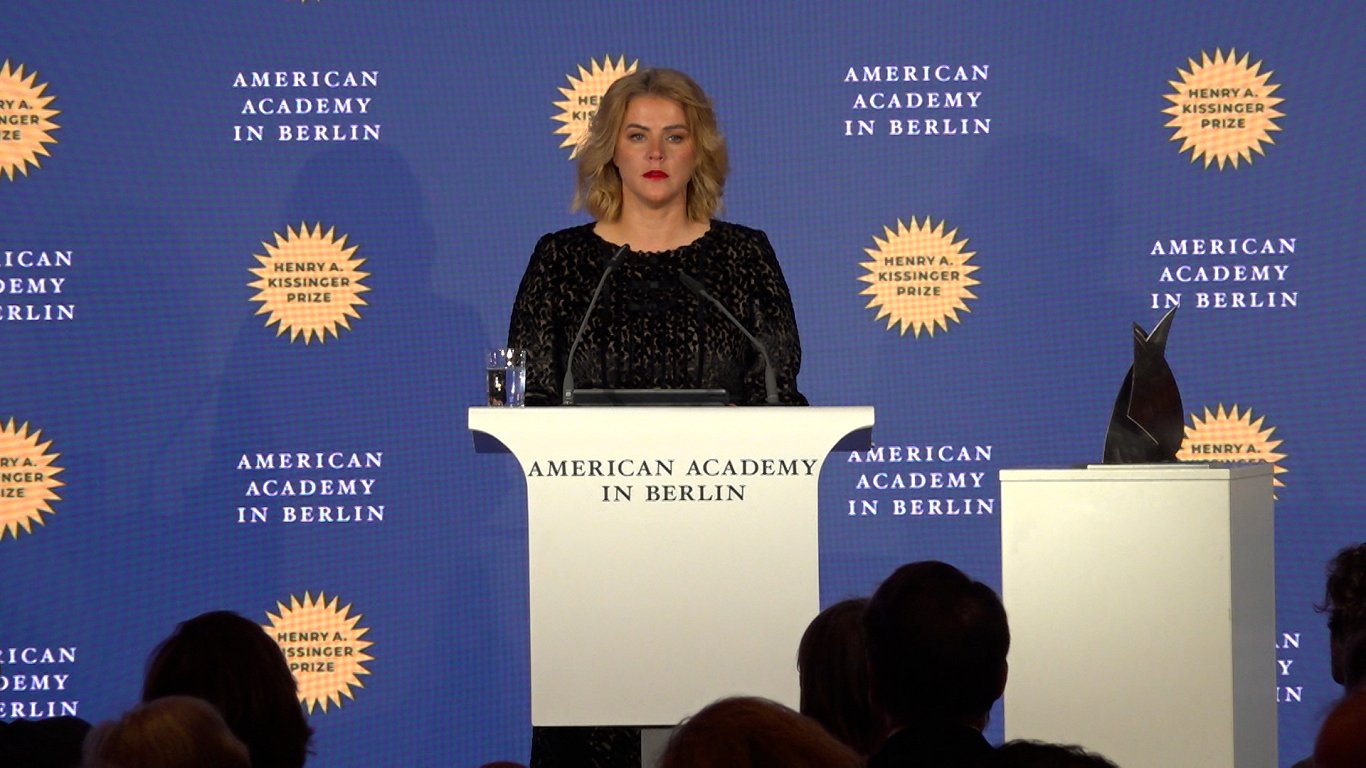The Baltic states were jointly presented with the Henry A. Kissinger Prize by the American Academy in Berlin on March 28 – which it should be noted is a private organization unaffiliated with the United States government.
Henry Kissinger himself, who died at the age of 100 in 2023, was a famous US diplomat and Nobel Peace Prize winner. He was born in Berlin, but moved to the US with his parents in 1938 to escape Hitler’s persecution of Jews.
He was known for his role as US Secretary of State and as an influential policy advisor in such matters as US relations with the USSR, China and the Vietnam War, and had a reputation as a diplomatic heavyweight whose opinion was always sought even decades after he left office. However, his involvement in such matters as US support for South American juntas and the bombing of Cambodia remain matters of controversy.
The Kissinger Prize has been awarded since 2007 for contributions to transatlantic relations, and this time it was received by all three Baltic states – the current Prime Minister of Latvia and the former Prime Ministers of Estonia and Lithuania, marking 20 years since these countries joined the transatlantic NATO alliance.
Latvian Prime Minister Evika Siliņa expressed faith in transatlantic relations, while noting that the key to success lies in European unity – unity against Russian aggression and support for Ukraine. “I am Latvian, but I think like an American. However, I live like a European, but I fight like a Ukrainian – for the values of democracy,” she said.
The American Academy in Berlin, which presents this award, is a private organization, not affiliated with the US government and its funding, so experts admit that this award is unlikely to place the Baltic states on the current US administration’s list of “good” countries – even though the Baltic states were among the first to increase defense spending and their contribution to Ukraine is proportionally the largest – along with Denmark.
Karl Hinterleitner, a political commentator for German public broadcaster ZDF, said: “The prize is a good thing, but perhaps its values do not reflect so much the values of the current US administration.”
Daniel Benjamin, President of the American Academy in Berlin, said: “In a time when the foundational values of the transatlantic alliance—democracy, sovereignty, and the rule of law—are under grave threat, Kaja Kallas, Evika Siliņa, and Ingrida Šimonytė have demonstrated tremendous leadership and extraordinary moral courage. Through their unwavering support for Ukraine and commitment to European unity and security, they have pointed the way for the North Atlantic community and moved their own nations to undertake enormous sacrifices. Sitting, as their nations do, on the edge of the volcano, they have been crystal clear in calling out aggression and barbarity for what it is. No one today more dramatically exemplifies the historic shared values of the transatlantic community. With admiration and gratitude, the American Academy in Berlin recognizes their heroic work to achieve a secure, democratic, and peaceful future.”
According to the organization the Academy “is funded entirely through tax-deductible donations from individuals, foundations, and corporate partners on both sides of the Atlantic.”
Previous recipients of the award are Helmut Schmidt, George H.W. Bush, Richard von Weizsäcker, Michael R. Bloomberg, Helmut Kohl, George P. Shultz, Ewald-Heinrich von Kleist (posthumous), James A. Baker III, Giorgio Napolitano, Hans-Dietrich Genscher, Samantha Power, Wolfgang Schäuble, John McCain, Angela Merkel, James N. Mattis, Frank-Walter Steinmeier, and Jens Stoltenberg.
